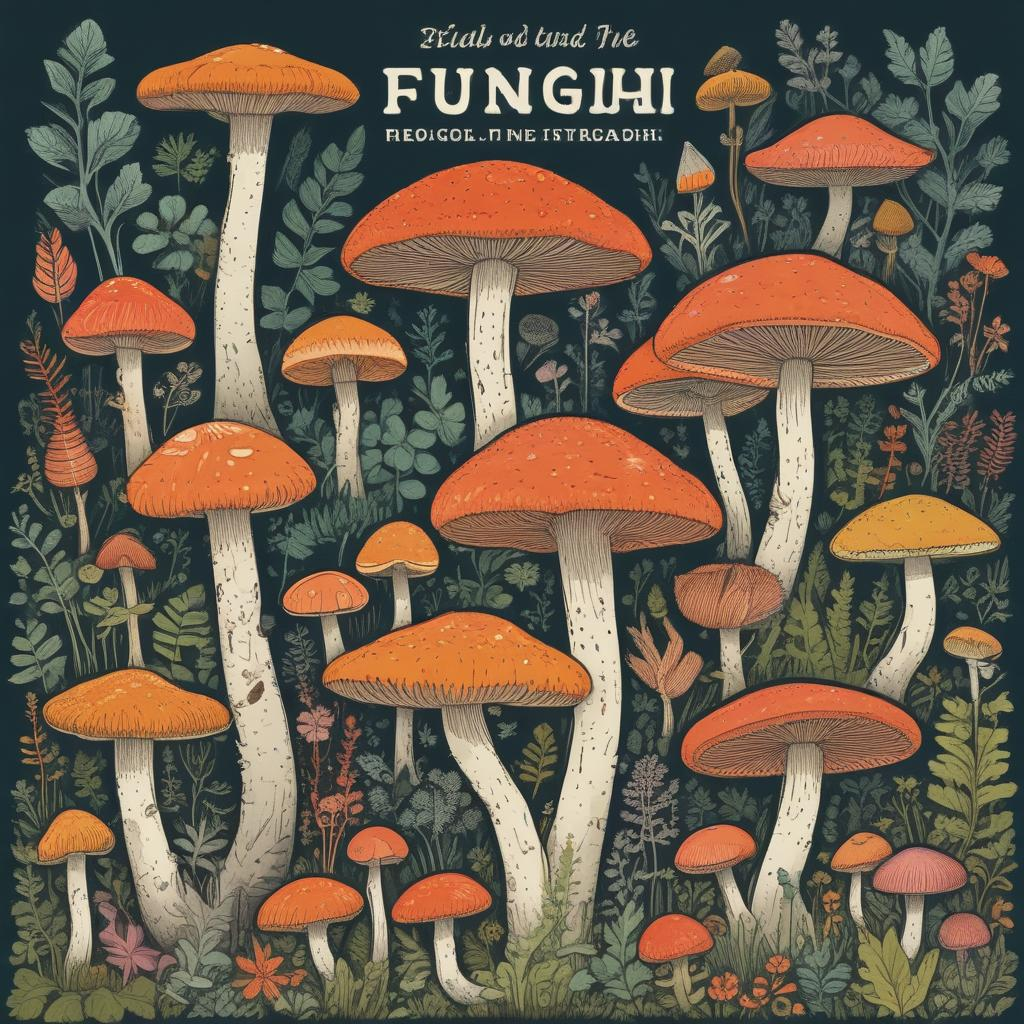What are fungi and why are they significant?
Fungi are a diverse kingdom of organisms that are neither plants nor animals. They include yeasts, molds, and mushrooms. Fungi play critical roles in ecosystems as decomposers, breaking down dead organic matter, and as symbionts, helping plants absorb nutrients from the soil. Beyond their ecological importance, fungi have significant applications in medicine (like antibiotics and cholesterol-lowering statins), food production (such as bread, beer, and cheese), and biotechnology.

How do fungi differ from other living organisms?
The primary distinction of fungi is in their cellular structure and reproductive strategies. Unlike plants, fungi do not perform photosynthesis, and unlike animals, they absorb nutrients directly through their cell walls. They reproduce by releasing spores, which can be spread by wind, water, or other organisms. Genetically, fungi are more closely related to animals than to plants, sharing a common ancestor with the animal kingdom.
What are some common types of fungi, and where can they be found?
The fungal kingdom is vast, with over 144,000 known species, ranging from the microscopic to the majestically large. Common types of fungi include:
- Sac Fungi: Includes yeasts used in baking and brewing, as well as molds like penicillin.
- Club Fungi: Encompasses most mushrooms.\
- Zygomycetes: Includes bread molds such as Rhizopus stolonifer.
- Chytrids: Mostly aquatic fungi, responsible for diseases in amphibians.
Fungi are ubiquitous and can thrive in a variety of environments, from soil and water to extreme environments like deep-sea sediments and radioactive waste.
Can fungi be dangerous to humans?
While many fungi are beneficial, some are hazardous to humans and other organisms. Pathogenic fungi can cause infections, with conditions ranging from mild skin infections, like athlete's foot, to severe systemic infections that can spread throughout the body. Additionally, some fungi produce mycotoxins, toxic compounds that can cause serious health issues when ingested, inhaled, or come into contact with skin.
How do fungi interact with their environment?
Fungi are master decomposers in ecosystems, turning complex organic materials like dead wood and leaves into simpler substances that other organisms can utilize. Some fungi form relationships with plants called mycorrhizae, where the fungal network enhances the roots' ability to absorb water and nutrients, while the plant supplies the fungi with carbohydrates formed during photosynthesis. These interactions are vital for the health of most plants and by extension, ecosystems around the world.
What are some intriguing fungal behaviors?
One of the more fascinating aspects of fungal biology is their ability to form large, interconnected networks, often referred to as the "Wood Wide Web." These networks enable fungi to communicate and transfer nutrients between different parts of the forest, helping stabilize the ecosystem. Additionally, some fungi are capable of bioaccumulation and bioremediation, absorbing heavy metals and other pollutants from soil, thereby detoxifying environments.
How does studying fungi help us address global challenges?
Studying fungi has immense implications for addressing many global challenges. For instance, fungal enzymes are used in biofuel production, offering a renewable energy source. Bioremediation techniques harness fungi to cleanse polluted environments. In agriculture, understanding fungal diseases can lead to better disease management and food security. Furthermore, the study of fungi contributes to advancements in medicine, especially in antibiotic and enzyme therapies, addressing significant health challenges.
What future potentials do fungi hold?
The vast unexplored potential of fungi offers numerous possibilities for future explorations and applications. Biotechnological advancements using fungi could lead to new drug discoveries, more efficient biofuels, and innovative ways to handle waste management. The ability of fungi to adapt to various environments also positions them as crucial study organisms in understanding resilience and adaptation in the face of climate change.
How can one start learning about fungi or get involved in mycology?
Getting involved in mycology, the study of fungi, can start with education through books, online courses, and workshops. Many local and regional mycological societies offer field trips, foraging outings, and identification workshops that are invaluable for beginners. Engaging with community science projects and fungi documenting and mapping projects can also provide practical mycological experiences and contribute to scientific knowledge.


.jpg)




.jpg)




.png)
0 Comments